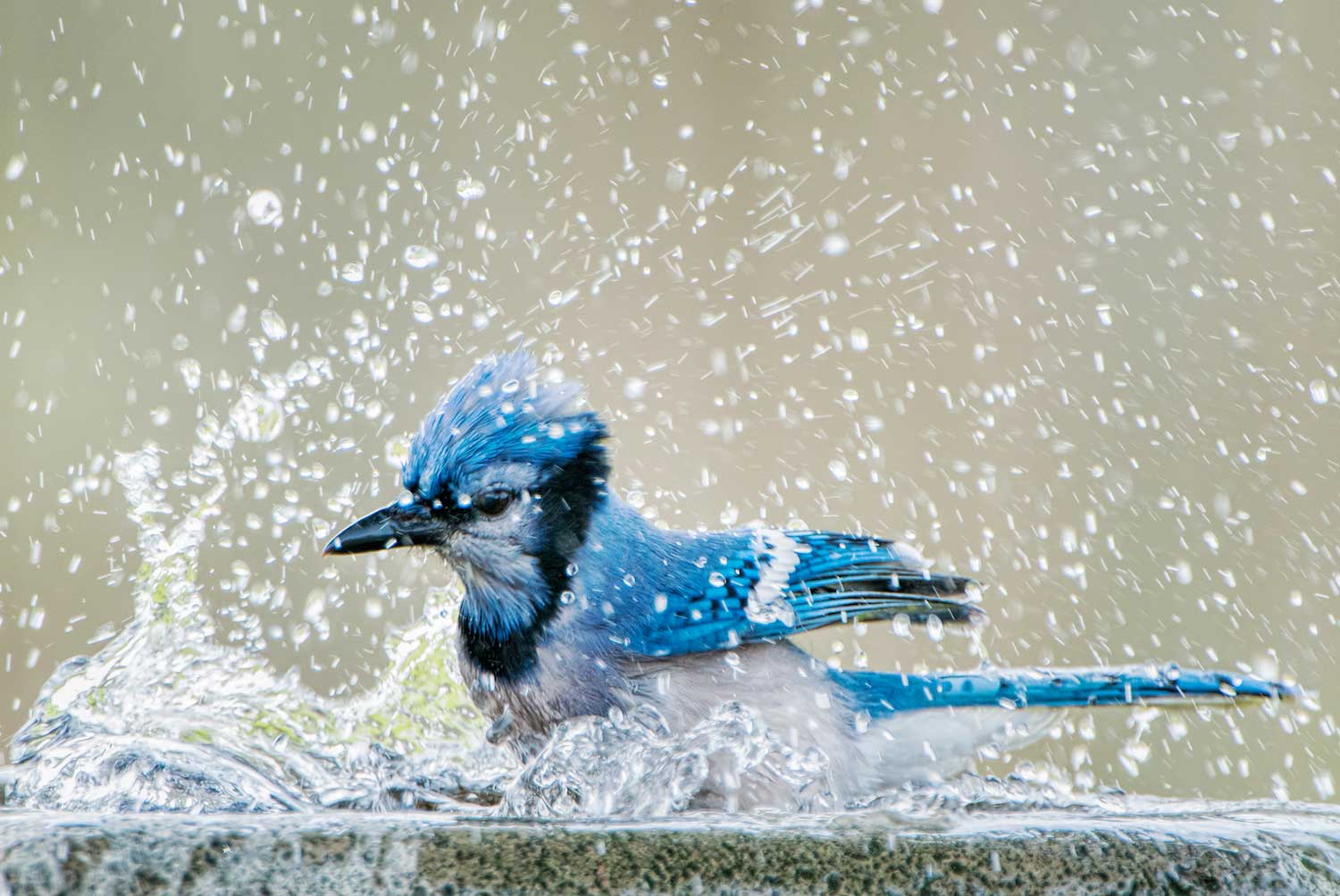Help wildlife beat the heat by leaving water out for them

When heat and humidity combine to make the great outdoors feel like a sauna, it's good to know we can escape to the cool comfort of our air-conditioned homes, cars, offices and even local cooling centers for some relief. Wild animals don't have this luxury, but they do have some strategies to help them beat the heat.
At times when we have to be outdoors during a heat wave, our bodies will sweat to help us maintain our body temperature and not overheat. Most animals, however, don't have enough sweat glands to sweat like humans. Only monkeys, apes and horses sweat to help stay cool, Smithsonian Magazine reports. But still, many animals take a human-like approach to trying to stay cool. They take shelter during the hottest parts of the day.
From reptiles to mammals, many animals seek shelter from the sun when it is hot. For reptiles, beating the heat is especially critical because they are cold-blooded, or ectothermic, which means they use the environment to control their body temperature, Smithsonian reports. They can overheat quickly on a hot day, so they often seek cooler locales. Reptiles like lizards and snakes might burrow underground or move under a rock or log, while turtles will often go deeper in the water, where it is cooler.
Birds, too, seek shade in the heat, but they also have other strategies to help keep them cool. Like dogs, some birds can do their own version of panting to help them stay cool. Their version of panting is called gular fluttering, and it involves breathing with their mouths open while also vibrating the throat membranes, causing excess heat to leave their bodies, the U.S. Fish and Wildlife Service reports.
Because many animals rely on water to stay cool, you can help them beat the heat by leaving water out for them, according to Treehugger. If you have a birdbath in your yard, you're already helping, but make sure to clean it and replenish the water frequently.
Birdbaths will, of course, benefit birds, and also some insects that need a quick dip to cool off. Even your regular yard work, like watering the garden, can help provide necessary water for insects, the National Wildlife Federation reports.
Many other animals could benefit from a splash or sip of water but may not be able to get to a birdbath. For small mammals like ground squirrels, chipmunks and even raccoons and others, leaving a few containers of water out in your yard can help, the National Wildlife Federation advises. If you can, put out a few containers, at least one very shallow for the smallest critters and others a bit deeper. Clean the containers regularly and refill with water as needed.
Water isn't the only thing animals rely on to keep cool in extreme temperatures. Some have developed other unique strategies. Take birds like turkey vultures and storks. They will poop on their legs to help cool them off, Smithsonian Magazine reports. This works similar to how sweat does for humans. Their excrement is liquid, so as it dries on their legs heat is carried away from their bodies, which lowers their body temperature.
A less disgusting but still downright dirty method of keeping cool is wallowing in the mud. Pigs are probably the most well-known wallowers, but hippos, buffalo and boars will also roll around in mud to cool off, according to Smithsonian Magazine. Wallowing in mud also works much like sweating. When water in the mud evaporates, it carries heat away from the animals' bodies and brings their body temperature down.
Still another way some animals cool off is with their ears. Rabbits, including eastern cottontails, have a lot of blood vessels in their ears, and when it's hot the blood vessels will dilate to allow heat to dissipate. Similarly, elephants can flap their ears to cool the blood flowing through their ears, helping them cool off in the heat, Smithsonian Magazine reports.
